“I came to the Greeks early, and I found answers in them," writer and classicist Edith Hamilton once said.
The Greeks have one of the oldest cultures in the world (not to mention the first known democracy), and to this day, we turn to the wellspring of Greek wisdom for guidance on living well. With both an ancient tradition of introspection and ethical inquiry, and also to one of the most heart-healthy diets in the world, the Greeks know a thing or two about how to live a good life.
But it's not just ancient Greek philosophers like Plato and Aristotle who unlocked the secrets to a meaningful life. The health habits and leisure rituals of modern Greece also have a lot to teach the rest of the world about health and happiness.
Here are 11 Greek secrets to living well.
They eat a healthy Mediterranean diet.
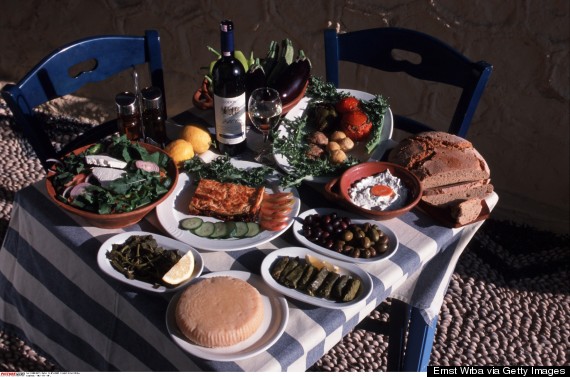
The Mediterranean diet is heavy on vegetables, olives, healthy fats and oils, fish, whole grains and red wine (in moderation), and is thought to have extensive health benefits, contributing to lower rates of heart disease, obesity, cancer, and Alzheimer's disease. Research analyzing 1.5 million healthy adults found that those who followed the Mediterranean diet had a lower risk of dying from heart disease and cancer and a reduced risk of developing Alzheimer's disease.
They take naps.
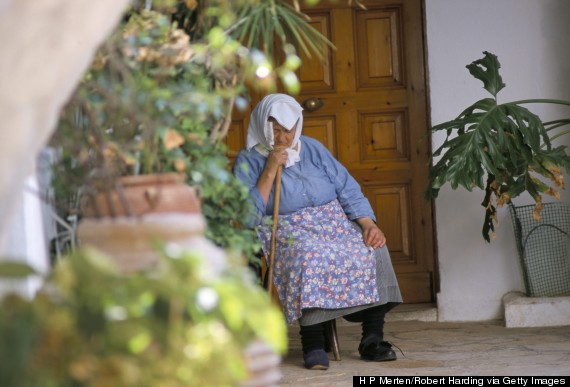
Greeks believe firmly in many things, and afternoon naps are one of them. In some of the smaller towns and villages, businesses commonly shut down in the mid-afternoon for the Greek siesta time and open again around 5 p.m.
"Napping is a response, an adaptation to the hot climate," Dimitrios Trichopoulos, a Greek researcher at the Harvard School of Public Health, told NPR. "Siesta is a very pleasant habit. In a way, it doubles your day. Because you start all over again at 5 o'clock and you can go on until 11 or 12 o'clock which is not uncommon at all in our part of the world."
They appreciate the value of a good walk.
During the warmer months, small villages and towns in Greece turn to the daily tradition of volta (translated as stroll or outing). When the sun goes down, Greek families will take leisurely walks up and down the main streets of small towns, and on the islands, they'll enjoy a leisurely stroll along the shore.
They ask the big questions.
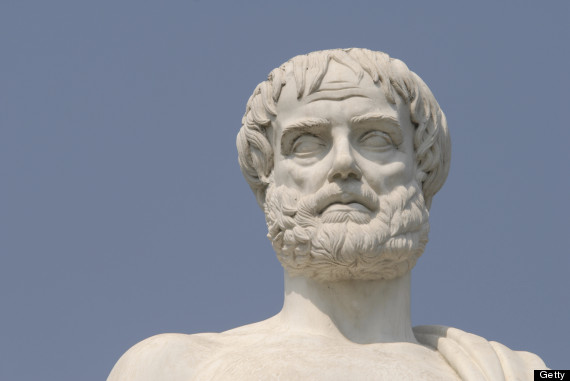
The Greek philosophical tradition is one of the oldest and arguably the richest in the world. Philosophical inquiry thrived in the culture of ancient Greek, and philosophers like Plato, Aristotle, Plotinus, Epicurus and Epictetus asked the big questions: How do we live a good life? How should the city be governed? What is morality and how should we treat others?
In many ways, we owe the tradition of living the "examined life" to the ancient Greeks. As Aristotle once wrote, "Knowing yourself is the beginning of all wisdom.”
They take hospitality and generosity very seriously.
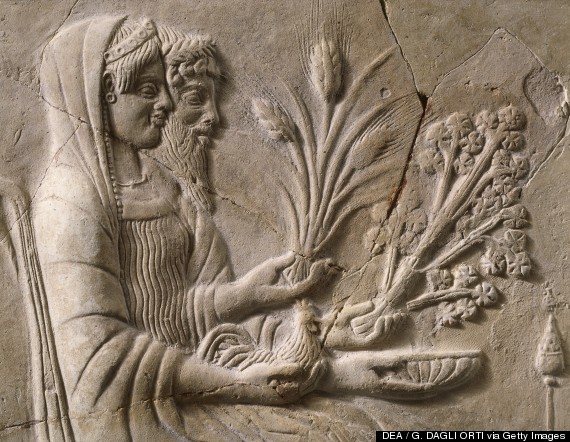
Greek hospitality goes as far back as Odysseus, and it's been embedded in Greek culture and families to this day. (Ever seen "My Big Fat Greek Wedding"?). This generosity and welcoming spirit derives from the word filoxenia, which translates to "love of foreigners." Historically, it has referred to the hospitality of villagers and residents of small towns who would take in travelers passing through, offering a meal and a bed, whereas now it generally refers to the hospitality offered to friends, family or acquaintances, according to Greek Care, a website that teaches Australians about traditional Greek culture.
They've unlocked the secrets to longevity.
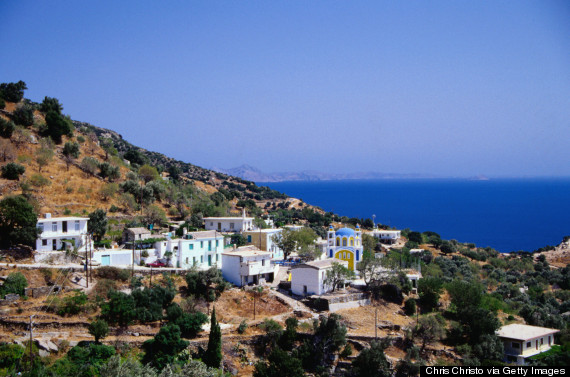
The little Mediterranean island of Ikaria has one of the healthiest, longest-living populations in the world. Ikarian men are nearly four times as likely as American men to reach the age of 90, and often in better health, according to a 2012 New York Times article, "The Island Where People Forget To Die." They also have lower rates of depression and dementia. Their secrets to long life? A fresh, healthy Mediterranean diet, lots of outdoor and leisure time, strong families and communities and plenty of sleep.
“We wake up late and always take naps,” Dr. Ilias Leriadis, an Ikarian physician, told the New York Times. “I don’t even open my office until 11 a.m. because no one comes before then.”
They take time for leisure.
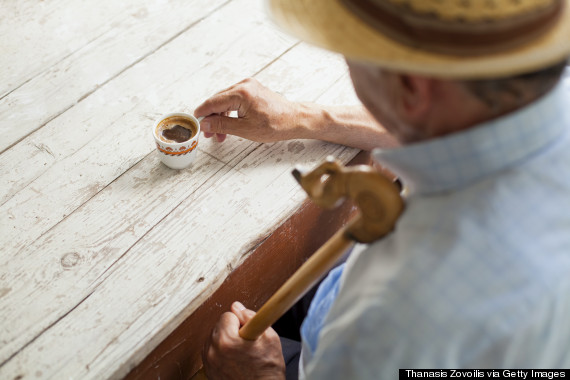
Another longevity secret of the Ikarians? They live by "island time."
“Have you noticed that no one wears a watch here? No clock is working correctly," Leriadia said. "When you invite someone to lunch, they might come at 10 a.m. or 6 p.m. We simply don’t care about the clock here.”
But taking time to savor life's little pleasure isn't limited to Ikaria; Greeks are known for having a slower pace of life, which allows them to linger over and savor family activities, long meals and small pleasures. As a Manchester Evening News travel writer advises visitors to the Greek isles:
They tell stories.

The rich tradition of Greek mythology is alive and strong in the culture today. Through these classic tales of gods and mortals, children learn classic wisdom and moral values. Traditionally, it is through stories -- which our brains use to give our lives structure and meaning -- that the Greeks have made sense of their world.
As Arianna Huffington wrote in The Gods of Greece:
They spend time outdoors.
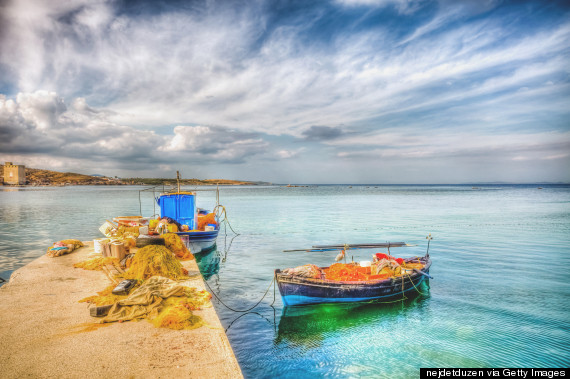
With Greece's temperate climate, warm sunshine, beautiful beaches and islands, why wouldn't you soak up the health benefits of spending time outdoors?
They come together over good food.
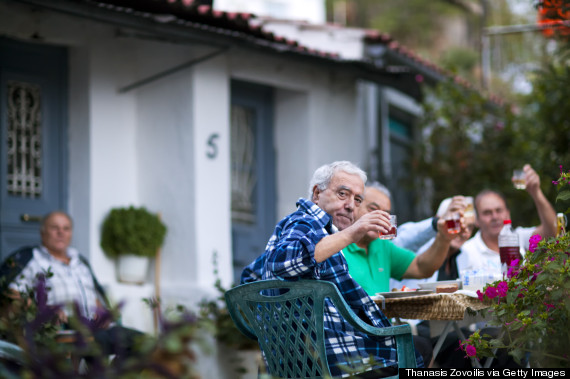
Greeks love food, and they love gathering with family, friends and community members. So naturally, it's a Greek tradition to bring people together for healthy meals.
"[My mother] loved how food brought people together," Unbinding the Heart author Agapi Stassinopolous wrote on Oprah.com. "Eating dissolves the separation between strangers. That's the Greek way, and that was our family way also -- to feed people, to show love and attention through dishes like spanakopita. At the table, my mother mended old wounds and made new friends. She reminded us that excluding anyone is simply denying yourself an opportunity to grow -- and live."
They know where to find happiness.

Stoicism was one of the ancient Greek schools of philosophy founded in Athens that remains relevant to this day. The Stoics believed that stress and unhappiness are not the result of external events, but rather the product of our own internal judgments, and therefore that happiness, too, can only be found within. The Stoic philosopher Epictetus said that the one way to happiness was to look within; to "cease worrying about things which are beyond the power or our will. ”
"Stoicism took off because it offered security and peace in a time of warfare and crisis,” HuffPost Managing Editor Jimmy Soni wrote in his book Rome's Last Citizen , a biography of noted Stoic, Cato the Younger. “The Stoic creed didn't promise material security or a peace in the afterlife; but it did promise an unshakable happiness in this life."
from Healthy Living - The Huffington Post http://www.huffingtonpost.com/2013/12/03/what-greece-can-teach-the_n_4316899.html?utm_hp_ref=healthy-living&ir=Healthy+Living
via IFTTT
The Greeks have one of the oldest cultures in the world (not to mention the first known democracy), and to this day, we turn to the wellspring of Greek wisdom for guidance on living well. With both an ancient tradition of introspection and ethical inquiry, and also to one of the most heart-healthy diets in the world, the Greeks know a thing or two about how to live a good life.
But it's not just ancient Greek philosophers like Plato and Aristotle who unlocked the secrets to a meaningful life. The health habits and leisure rituals of modern Greece also have a lot to teach the rest of the world about health and happiness.
Here are 11 Greek secrets to living well.
They eat a healthy Mediterranean diet.

The Mediterranean diet is heavy on vegetables, olives, healthy fats and oils, fish, whole grains and red wine (in moderation), and is thought to have extensive health benefits, contributing to lower rates of heart disease, obesity, cancer, and Alzheimer's disease. Research analyzing 1.5 million healthy adults found that those who followed the Mediterranean diet had a lower risk of dying from heart disease and cancer and a reduced risk of developing Alzheimer's disease.
They take naps.

Greeks believe firmly in many things, and afternoon naps are one of them. In some of the smaller towns and villages, businesses commonly shut down in the mid-afternoon for the Greek siesta time and open again around 5 p.m.
"Napping is a response, an adaptation to the hot climate," Dimitrios Trichopoulos, a Greek researcher at the Harvard School of Public Health, told NPR. "Siesta is a very pleasant habit. In a way, it doubles your day. Because you start all over again at 5 o'clock and you can go on until 11 or 12 o'clock which is not uncommon at all in our part of the world."
They appreciate the value of a good walk.
During the warmer months, small villages and towns in Greece turn to the daily tradition of volta (translated as stroll or outing). When the sun goes down, Greek families will take leisurely walks up and down the main streets of small towns, and on the islands, they'll enjoy a leisurely stroll along the shore.
They ask the big questions.

The Greek philosophical tradition is one of the oldest and arguably the richest in the world. Philosophical inquiry thrived in the culture of ancient Greek, and philosophers like Plato, Aristotle, Plotinus, Epicurus and Epictetus asked the big questions: How do we live a good life? How should the city be governed? What is morality and how should we treat others?
In many ways, we owe the tradition of living the "examined life" to the ancient Greeks. As Aristotle once wrote, "Knowing yourself is the beginning of all wisdom.”
They take hospitality and generosity very seriously.

Greek hospitality goes as far back as Odysseus, and it's been embedded in Greek culture and families to this day. (Ever seen "My Big Fat Greek Wedding"?). This generosity and welcoming spirit derives from the word filoxenia, which translates to "love of foreigners." Historically, it has referred to the hospitality of villagers and residents of small towns who would take in travelers passing through, offering a meal and a bed, whereas now it generally refers to the hospitality offered to friends, family or acquaintances, according to Greek Care, a website that teaches Australians about traditional Greek culture.
They've unlocked the secrets to longevity.

The little Mediterranean island of Ikaria has one of the healthiest, longest-living populations in the world. Ikarian men are nearly four times as likely as American men to reach the age of 90, and often in better health, according to a 2012 New York Times article, "The Island Where People Forget To Die." They also have lower rates of depression and dementia. Their secrets to long life? A fresh, healthy Mediterranean diet, lots of outdoor and leisure time, strong families and communities and plenty of sleep.
“We wake up late and always take naps,” Dr. Ilias Leriadis, an Ikarian physician, told the New York Times. “I don’t even open my office until 11 a.m. because no one comes before then.”
They take time for leisure.

Another longevity secret of the Ikarians? They live by "island time."
“Have you noticed that no one wears a watch here? No clock is working correctly," Leriadia said. "When you invite someone to lunch, they might come at 10 a.m. or 6 p.m. We simply don’t care about the clock here.”
But taking time to savor life's little pleasure isn't limited to Ikaria; Greeks are known for having a slower pace of life, which allows them to linger over and savor family activities, long meals and small pleasures. As a Manchester Evening News travel writer advises visitors to the Greek isles:
Take a stroll along the waterfront where the fishermen are mending their nets and unloading their catches. Pause for a coffee. Buy fresh-from-the-oven bread. Enjoy breakfast. Then let the day unfold. Slow your pace of life to that of the locals, philosophise, read a good book, bathe, snooze.
They tell stories.

The rich tradition of Greek mythology is alive and strong in the culture today. Through these classic tales of gods and mortals, children learn classic wisdom and moral values. Traditionally, it is through stories -- which our brains use to give our lives structure and meaning -- that the Greeks have made sense of their world.
As Arianna Huffington wrote in The Gods of Greece:
"In our longing to understand ourselves and our world, the gods of the past, very much alive today, can show us our way into the future. Because they are so natural, so human in their divinity, they can help heal our culture's split between the earthly and the sacred, the secular and the religious. In the Greek gods, the eternal and the divine are fully at home with the ephemeral and earthly. The natural is the divine, and therefore nothing is accidental or meaningless."
They spend time outdoors.

With Greece's temperate climate, warm sunshine, beautiful beaches and islands, why wouldn't you soak up the health benefits of spending time outdoors?
They come together over good food.

Greeks love food, and they love gathering with family, friends and community members. So naturally, it's a Greek tradition to bring people together for healthy meals.
"[My mother] loved how food brought people together," Unbinding the Heart author Agapi Stassinopolous wrote on Oprah.com. "Eating dissolves the separation between strangers. That's the Greek way, and that was our family way also -- to feed people, to show love and attention through dishes like spanakopita. At the table, my mother mended old wounds and made new friends. She reminded us that excluding anyone is simply denying yourself an opportunity to grow -- and live."
They know where to find happiness.

Stoicism was one of the ancient Greek schools of philosophy founded in Athens that remains relevant to this day. The Stoics believed that stress and unhappiness are not the result of external events, but rather the product of our own internal judgments, and therefore that happiness, too, can only be found within. The Stoic philosopher Epictetus said that the one way to happiness was to look within; to "cease worrying about things which are beyond the power or our will. ”
"Stoicism took off because it offered security and peace in a time of warfare and crisis,” HuffPost Managing Editor Jimmy Soni wrote in his book Rome's Last Citizen , a biography of noted Stoic, Cato the Younger. “The Stoic creed didn't promise material security or a peace in the afterlife; but it did promise an unshakable happiness in this life."
from Healthy Living - The Huffington Post http://www.huffingtonpost.com/2013/12/03/what-greece-can-teach-the_n_4316899.html?utm_hp_ref=healthy-living&ir=Healthy+Living
via IFTTT
No comments:
Post a Comment